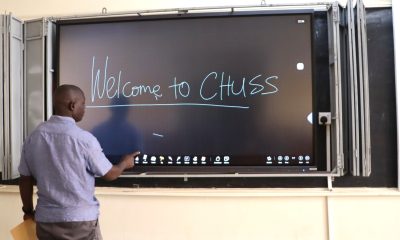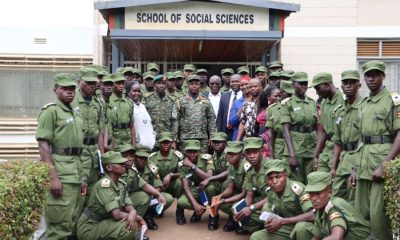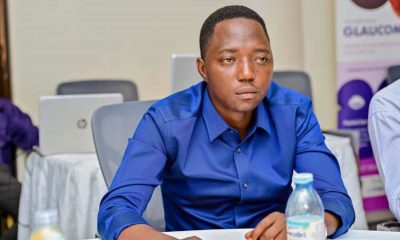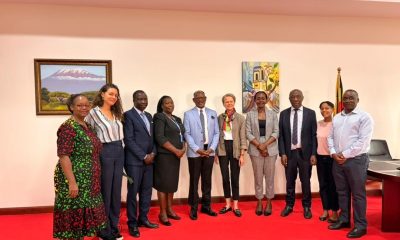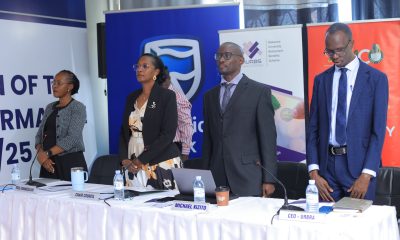REMARKS BY PROFESSOR BUYINZA MUKADASI
ACADEMIC REGISTRAR
AT THE ORIENTATION CEREMONY OF FRESHER STUDENTS,
ACADEMIC YEAR 2023/2024
AT THE FREEDOM SQUARE, MAKERERE UNIVERSITY, KAMPALA
ON MONDAY 21ST AUGUST, 2023
Members of University Council
Members of University Management Principals, Deans and Directors Academic, Administrative and Support Staff of the University
Students
Ladies and Gentlemen
Dear Students; Class of 2023/2024
We are delighted that you have chosen Makerere University as you enter the next phase of your journey of intellectual growth, self-discovery and personal development. You have chosen very well! Your energy and excitement will enrich our vibrant campus life for the next years.
I wish to take this enviable moment and singular privilege to welcome you to Makerere University. It is an occasion that deserves celebration. What else can an Academic Registrar do after receiving 20,000 Undergraduate and Graduate students who excelled and were approved for admission by the University Senate of Makerere; famed to be one of the strictest in the world.
You are joining a 100-year old University with a long history and well-entrenched culture and tradition of academic excellence and of nurturing exceptional intellectual talent of young people like you. You are joining us at a time when higher education is undergoing rapid and dramatic transformation. We live in an era when knowledge is growing in importance in addressing the world’s most pressing problems, when technology promises both wondrous possibilities and profound dislocations, when global forces increasingly shape our lives and work, when traditional intellectual fields are shifting and converging, and when public expectations and demands of higher education are intensifying.
So, today you are making your first step in a journey of several years. The time and place where this transformative journey begins is known. It is today and at Makerere University. The end however will only be determined by you.
To set out on a journey, you must know the destination, the means of getting there and the resources you need to get there. In the case of an academic journey the destination is graduation while time, commitment and attitude form the other requirements.
I know most of you are not at ease. You are preoccupied with the idea of being in an unfamiliar environment. For most of you, this might be the first time you are away from your family. You must be wondering about what it is like to be away from the familiar and predictable life or comfort zone at home. However you are not the only ones who have left familiar territory to join university.
We want you to achieve your academic and personal potential, to develop networks of friends, new interests and life skills. In order to achieve this we recommend that you work hard; find time to relax; and make use of the support services that are available to you. It is therefore critically important that you take time to familiarize yourself with the materials in this manual.
We pledge to create an intellectually and socially vibrant environment, provide the resources, focused leadership for you to achieve your dreams. In you, I see vibrant young people with a lot of energy and enthusiasm. I hope that you will use the energy you have to your best for the benefit of yourselves and humanity. We want you to thrive and succeed here, academically, socially and personally.
As you can see, there are numerous opportunities at the university. These come in many forms; They may come in the form of sports and games, areas that develop talent like music and drama, professional circles where you interact with your future employers, social networks with the potential of providing a future spouse, spiritual growth and even honing your acumen in student politics. This however is easier said than accomplished. Like mines in a war zone, university life is littered with challenges that will make your dream difficult to realise.
University life has excess freedom which opens doors to sweet life. For the first time you have the opportunity to date and go out without the watchful eyes of your wife/husband or older siblings. But let me caution that this takes time and money. So strike a balance between social and academic life.
Life is more materialistic today than during our time. The products are also varied and more tempting. They range from sophisticated electrical appliances, drinks with strange colours catchy names, to fancy clothes and even gambling activities. The temptations will push your financial demands to the limit and sometimes even tempt you to divert your fees. Careful and prudent utilization of finances is your only way out.
Modern lifestyle if not handled carefully, could easily open doors to promiscuity whose outcome could be disastrous. The individual freedom coupled with the absence of someone to watch over you as well as unfamiliarity with the new environment may lead to confusion normally manifested in the form of failure to register for the right courses, missing classes, inability to keep timelines and so forth.
Then there is the issue of peer pressure, bad influence. Seek counsel, choose good company.
When one gets overwhelmed by all the challenges narrated above they become easy prey for drug abuse, sexual misconduct, radicalization and recruitment into devious groups. At the moment this is the biggest threat to the completion of your journey at Makerere University.
Finally, I wish you an exciting, rewarding, challenging and stimulating time at this University, which will be the start of what I hope will be a lifelong experience as members of Makerere University. However, just like in any other urban city take great care of your personal security while in Kampala; we shall play our part.
We offer you our very best wishes for every success during your time at Makerere University and we look forward to seeing your smiling faces during our daily walks on our beautiful campus! “We Build For the Future”.
Professor Buyinza Mukadasi (PhD)
ACADEMIC REGISTRAR
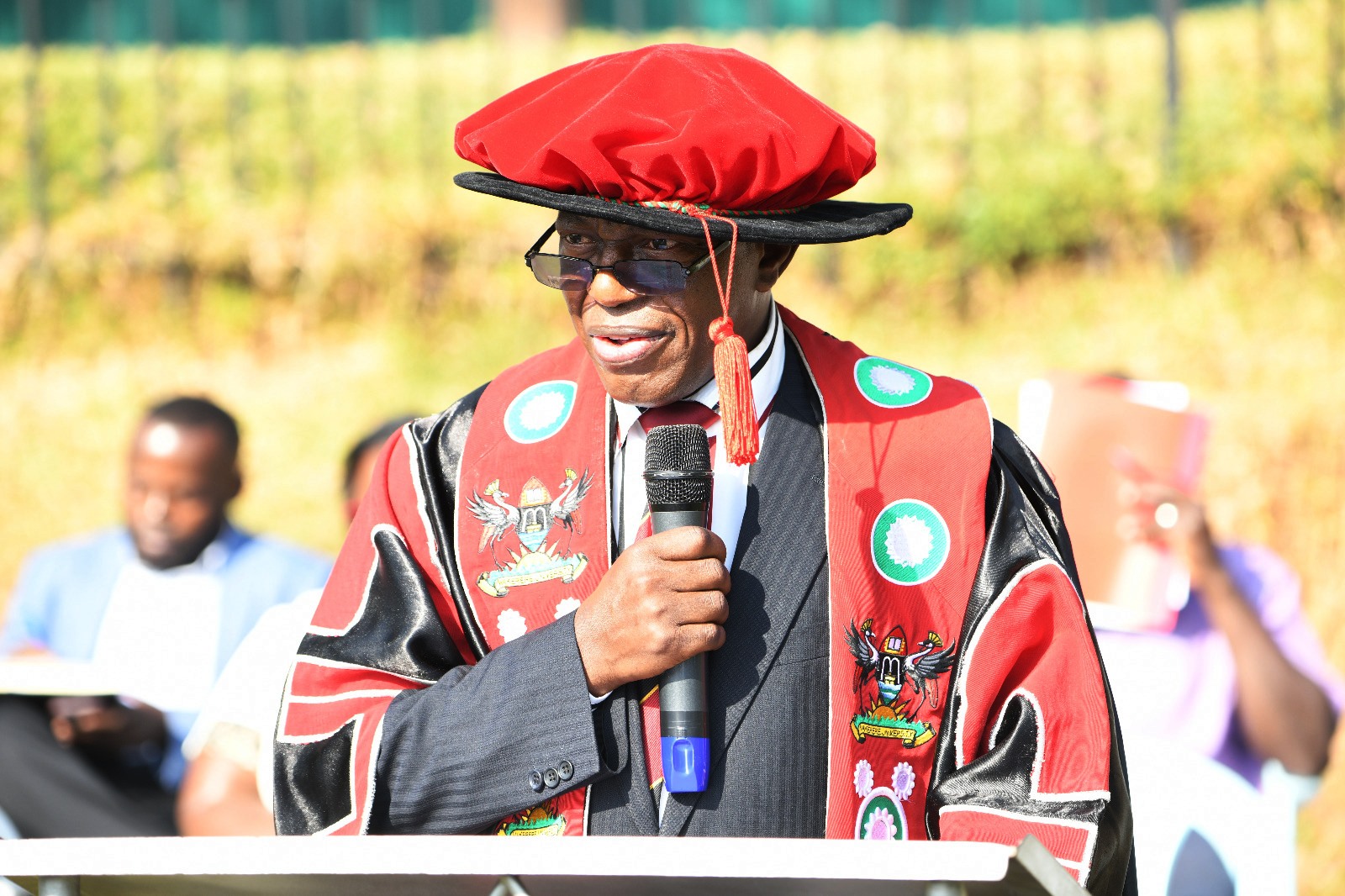

 Humanities & Social Sciences5 days ago
Humanities & Social Sciences5 days ago
 Health1 week ago
Health1 week ago
 Agriculture & Environment1 week ago
Agriculture & Environment1 week ago
 General4 days ago
General4 days ago
 General1 week ago
General1 week ago


